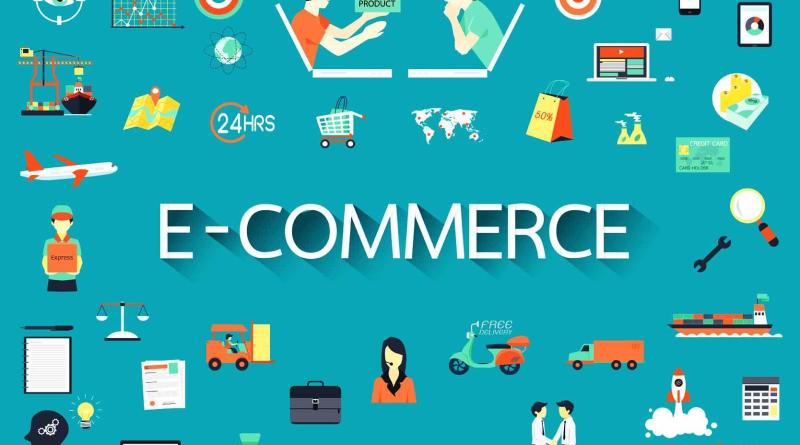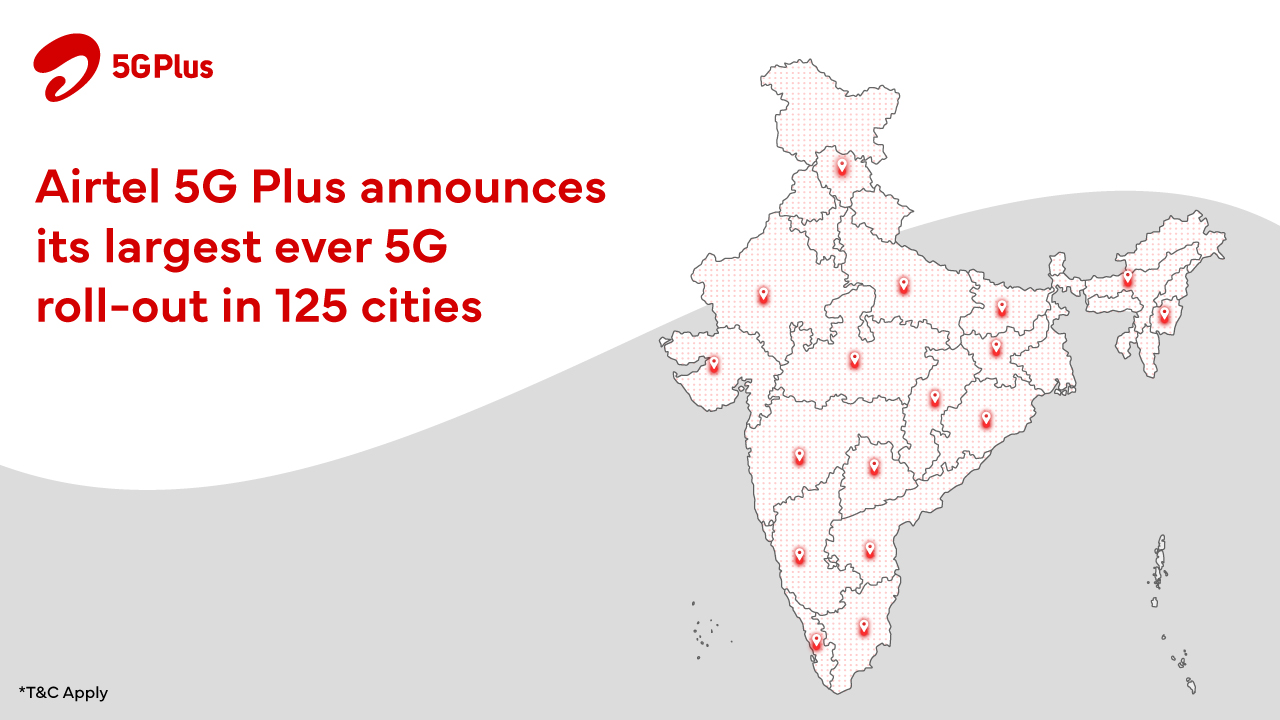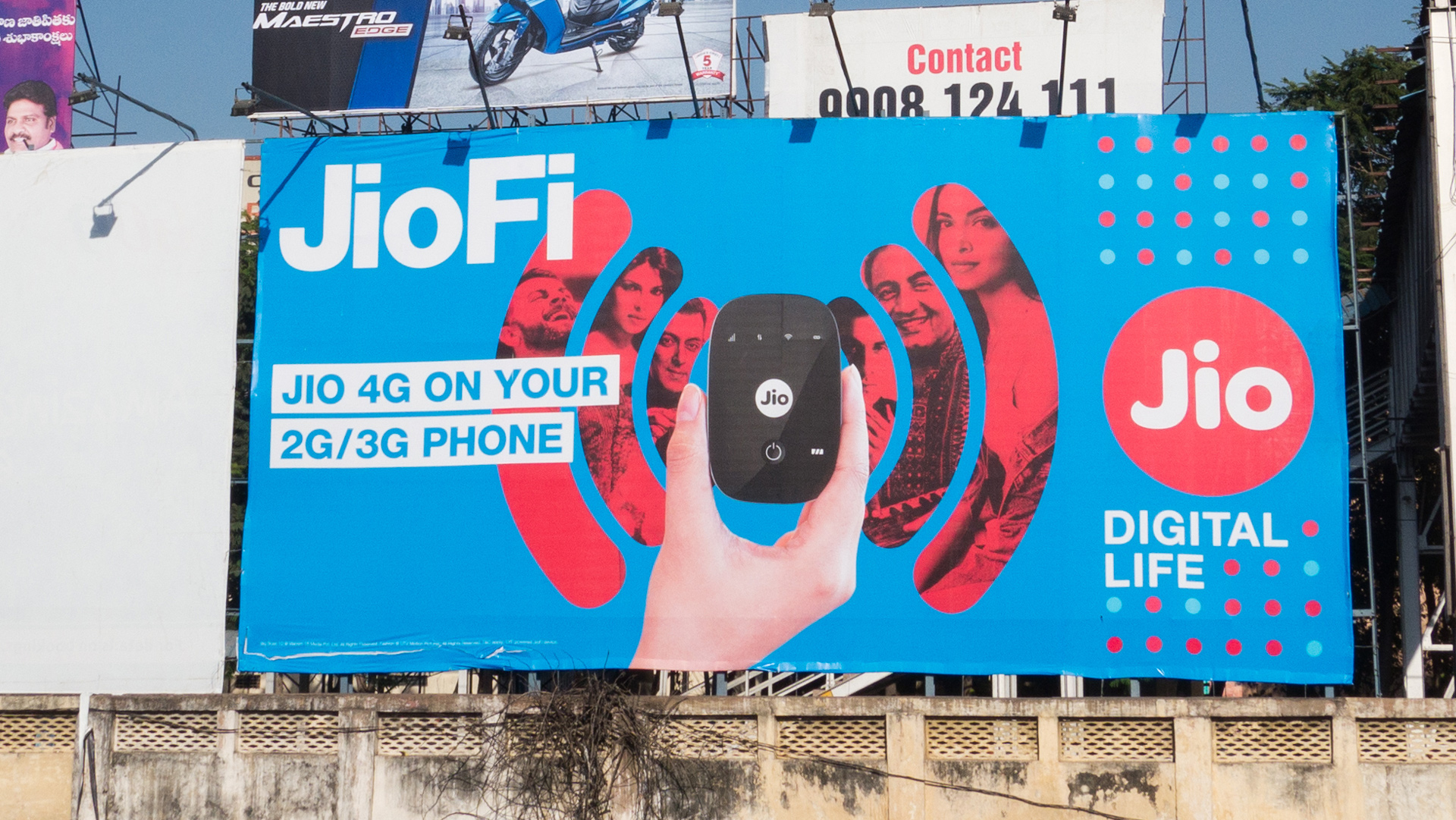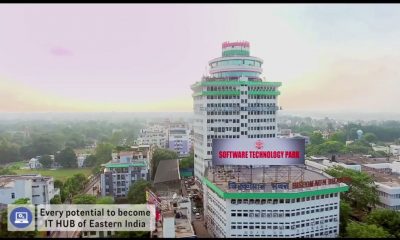Mobile Services
E-commerce witnessed 17% growth post Covid-19

NEW DELHI: Unicommerce, India‘s leading e-commerce focused SaaS platform, has released an impact report on the e-commerce industry which throws light on the performance across verticals and key trends shaping the sector.
The report extensively covers trends related to e-commerce growth, region-wise consumer demand, return orders and D2C trends and how it affects the industry in the post COVID-19 world.
The report titled – ‘E-commerce Trends Report 2020’ focuses on the growth of e-commerce in India along with detailing out changing consumer behaviour and the industry response to address the newly emerging e-commerce trends. First, of its kind, the report also throws light on the D2C approach and omnichannel solutions adopted by the e-commerce players, which will significantly shape the supply chain ecosystem in India, and impact the industry in the long run.
Key highlights of the report:
E-commerce in the post COVID-19
After the lockdown was announced, the problem of limited availability and fear of getting infected created a new shift in consumer behaviour and their buying patterns leading to a new wave of online consumers.
The overall e-commerce has not just recovered but witnessed an order-volume growth of 17% as of June 2020
The consumer buying patterns and preferences have changed significantly with categories like health & pharma and FMCG & agriculture seeing a surge and exponential growth, with the rise number of first-time online Shoppers
After e-commerce resumed operations post COVID-19, the return rate has seen a dip of ~10-30% depending on the category. The reduced return can be attributed to the new safety norms, increasing demand for essential products, which are generally non-returnable. However, it will be interesting to see if the trend of lower returns continues in the long term
There is an increasing trend of consumers buying directly from brands’ websites. Retail brands are now strengthening their online capabilities and opting for different approaches to connect with consumers
In the last one year, there has been a considerable growth of 65% for brands developing their own website, which led to an increase in self-shipped orders. However, the percentage of self-shipped orders declined from 35% in Feb 2020 to 30% in Jun 2020. The decline in self- shipped orders can be attributed to brands trusting marketplace logistics due to better service levels and lower unpredictability during current uncertain times.
Brands going direct to consumer
As the e-commerce ecosystem matures in India, there is an increasing trend of brands going directly to consumers to offer a great experience to its patrons. While the brands have created their own website, the brands continue to sell on the marketplace as it still drives the majority of the order volume
The number of consumers shopping directly from the brand’s website is increasing at much faster pace than marketplaces. Brand websites have witnessed 88% order volume growth as compared to 32% order volume growth on marketplaces
The top 3 segments that have seen an increasing penetration of D2C brands are Beauty & Wellness, Fashion & Accessories and FMCG & Agricultural sectors.
In the last one year, there has been a considerable growth of 65% for brands developing their own website, which has also led to an increase in self-shipped orders
India’s e-commerce annual growth pre- covid
India’s e-commerce sector has been on a constant growth, the e-commerce order volume saw a growth of ~20% while the GMV witnessed a surge of ~23% with an average order size of ~INR1100
Beauty & wellness is one sector that has witnessed an unprecedented order volume growth of ~130% followed by FMCG & agriculture and health & pharma with a growth of 55% and 38% respectively. These are emerging sectors with potential to accelerate e-commerce growth in India
Rising demand from hinterland of India
All leading e-commerce companies are focusing on cities beyond the metropolitan cities. Currently, Tier II and beyond cities contribute around 66% of the total online consumer demand in India and this share is expected to rise in the coming years
Tier III and beyond cities witnessed 53% growth, making it the fastest-growing region. It’s also observed that the top 5 cities of Tier III contribute only ~22% of the overall Tier III order volume, however in metro’s the top 5 cities constitute 90% of overall order volume
The top 3 states, by e-commerce volumes, are Delhi NCR, Maharashtra, and Karnataka, and they constitute 65% of overall consumer demand
Return orders on decline
Managing returns is an integral part of running an ecommerce business. The total percentage returns (as a percentage of forward dispatches) saw a decline of ~13% as compared to last year and it constitutes ~17% of the overall order volume as compared to ~20% in the previous year
E-commerce companies have invested extensively to reduce COD returns as they constitute large part overall returns. The return percentage on COD orders have reduced from 27% in 2019 to 20% in 2020 and for prepaid orders, the total return has decreased from 12% in 2019 to 11% in 2020. Even after such remarkable reduction in COD returns, it’s still almost 2X returns on prepaid orders
Another interesting trend observed is Tier II and beyond cities have seen a significant reduction of ~23% in overall returns. This change can be attributed to increasing, technology adoption improved last-mile delivery and customer centric return policies
Commenting on the report release, Kapil Makhija, CEO, Unicommerce said, “As the world is grappling with the effects of COVID-19, the ecommerce industry in India has seen a major boost since the beginning of this year. With this report, we wanted to throw light on the enormous growth opportunity that lies for the ecommerce industry in India. With changing consumer buying patterns and preferences, rise of new first time online users, increased focus on digitisation by retailers, brands opting for D2C model etc, we are confident the ecommerce industry will emerge as the most promising market across the globe with tremendous growth potential in the future. We at Unicommerce are committed towards simplifying e-commerce selling and this report is a vital step in the same direction. Through this report, we aim to decode the changing consumer patterns, and provide detailed insights on delivery and returns so that it can help the brands and e-tailers plan their e-commerce strategy much more comprehensively.”
With e-commerce at its all-time high, Unicommerce is uniquely positioned to provide e-commerce supply chain technology cloud solutions to help industry players of all sizes to manage their business efficiently. Established eight years ago, Unicommerce is a market leader processing over 20% of India’s e-commerce volume in the country and works with leading online players across segments. The company processes 700k+ order items per day, amounting to US$ 2.5 Bn+ GMV for over 10,000 registered customers across India, Middle East and Southeast Asia.
5g
Airtel announces its largest ever 5G roll-out in 125 cities

NEW DELHI: Bharti Airtel, India’s telecommunications services provider, today announced the launch of its ultra-fast 5G services in 125 cities. Airtel 5G Plus service is now available to customers in over 265 cities in the country.
Airtel 5G Plus has three compelling advantages for customers. First, it runs on a technology that has the widest acceptance in the world with the most developed ecosystem. This ensures that all 5G smartphones in India seamlessly work on the Airtel network. Second, the company promises to deliver the best experience – between 20 to 30 times higher speeds than today coupled with brilliant voice experience and super-fast call connect. Finally, Airtel 5G Plus network will also be kinder to the environment with its special power reduction solution. Powered by the reliable Airtel network infrastructure, Airtel 5G Plus will provide superfast access to High-Definition video streaming, gaming, multiple chatting, instant uploading of photos et all.
Commenting on the launch, Randeep Sekhon, CTO, Bharti Airtel said, “5G has revolutionized the world of internet, ushering new era of connectivity and communications that will prove to be a game-changer for the country. At Airtel, we remain committed to delivering the highest quality of network and service to our customers as we roll-out 125 more cities today. Airtel was the first in the country to offer 5G services in October 2022, and today’s mega launch is our promise to connect every Airtel customer in the country with ultra-fast Airtel 5G Plus. Our 5G rollout is on track to cover all towns and key rural areas by March 2024.”
Airtel 5G Plus service availability will continue to rapidly expand – including service in all towns and villages in the country soon – as the company is working towards offering nationwide coverage. Airtel is now offering its 5G services in every major city from the upper northern city of Jammu to the southern tip of Kanyakumari.
In the last one year, Airtel has demonstrated the power of 5G with a host of powerful use cases that will change the way customers lead their lives and do business. From India’s first live 5G network in Hyderabad to India’s first private 5G network at the BOSCH facility in Bengaluru to partnering with Mahindra & Mahindra to make its Chakan manufacturing facility, India’s first 5G enabled auto manufacturing unit, Airtel has been at the forefront of 5G innovation.
5g
Apple rolls out beta programme for iPhones to enable 5G services

NEW DELHI: Apple Inc has rolled out a beta programme to enable 5G on Apple devices as the upgrade lets users try out pre-release software.
This software upgrade enables 5G access on Apple devices, as and when service providers Jio, Airtel and Vodafone enable 5G network access, sources said.
Apple Users have to enrol for the Beta Programme on the website, install a profile and download the software.
Jio users using iPhone 12 and above, in cities where JioTrue5G has been rolled out, will be invited to the Jio Welcome Offer. Jio Welcome Offer provides unlimited 5G data at up to 1 Gbps speed to users at no additional cost. However, there is a condition that prepaid users must be on active Rs 239 and above plan. All Postpaid users are eligible for this trial.
Airtel is not providing any special 5G offer like Jio to their users. In the cities/areas in which the Airtel 5G network has been launched, users can trial 5G services as a part of their existing plan, once they have updated the latest Apple Beta software.
While an email sent to Apple did not solicit an immediate response, the firm had last month stated: “We are working with our carrier partners in India to bring the best 5G experience to iPhone users as soon as network validation and testing for quality and performance is completed. 5G will be enabled via a software update and will start rolling out to iPhone users in December”.
Airtel and Jio customers on iPhone 14, iPhone 13, iPhone 12 and iPhone SE (3rd generation) models can experience 5G as part of Apple’s iOS 16 Beta Software Program. The Apple Beta Software Program is open to anyone with a valid Apple ID who accepts the Apple Beta Software Program Agreement during the sign-up process.
If a user has an iCloud account, that is an Apple ID, it is recommended they use that. If they do not have an iCloud account or any other Apple ID, they can create one.
Customers who want to try the beta software should back up their iPhones before installing the beta software. It is recommended to install the beta software only on non-production devices that are not business-critical. Users can also provide feedback to Apple on quality and usability, which helps Apple identify issues, fix them, and make Apple software even better.
The iOS beta comes with the built-in Feedback Assistant app, which can be opened from the Home screen on the iPhone or iPad or from the Dock on the Mac.
Source: Press Trust of India
5g
Nokia wins multi-year deal with Reliance Jio India to build one of the largest 5G networks in the world

NEW DELHI: Nokia has announced that it has been selected as a major supplier by Reliance Jio to supply 5G Radio Access Network (RAN) equipment from its comprehensive AirScale portfolio countrywide in a multi-year deal. Reliance Jio is India’s number one mobile operator and has one of the largest RAN footprints in the world.
Under the contract, Nokia will supply equipment from its AirScale portfolio, including base stations, high-capacity 5G Massive MIMO antennas, and Remote Radio Heads (RRH) to support different spectrum bands, and self-organizing network software. Reliance Jio plans to deploy a 5G standalone network which will interwork with its 4G network. The network will enable Reliance Jio to deliver advanced 5G services such as massive machine-to-machine communications, network slicing, and ultra-low-latency.
Akash Ambani, Chairman Reliance Jio, commented: “We are pleased to be working with Nokia for our 5G SA deployment in India. Jio is committed to continuously investing in the latest network technologies to enhance the experience of all of its customers. We are confident that our partnership with Nokia will deliver one of the most advanced 5G networks globally.”
Pekka Lundmark, President and CEO at Nokia stated: “This is a significant win for Nokia in an important market and a new customer with one of the largest RAN footprints in the world. This ambitious project will introduce millions of people across India to premium 5G services, enabled by our industry-leading AirScale portfolio. We are proud that Reliance Jio has placed its trust in our technology and we look forward to a long and productive partnership with them.”
Nokia has a long-standing presence in India. This new deal will mean that Nokia is now supplying India’s three largest mobile operators.














